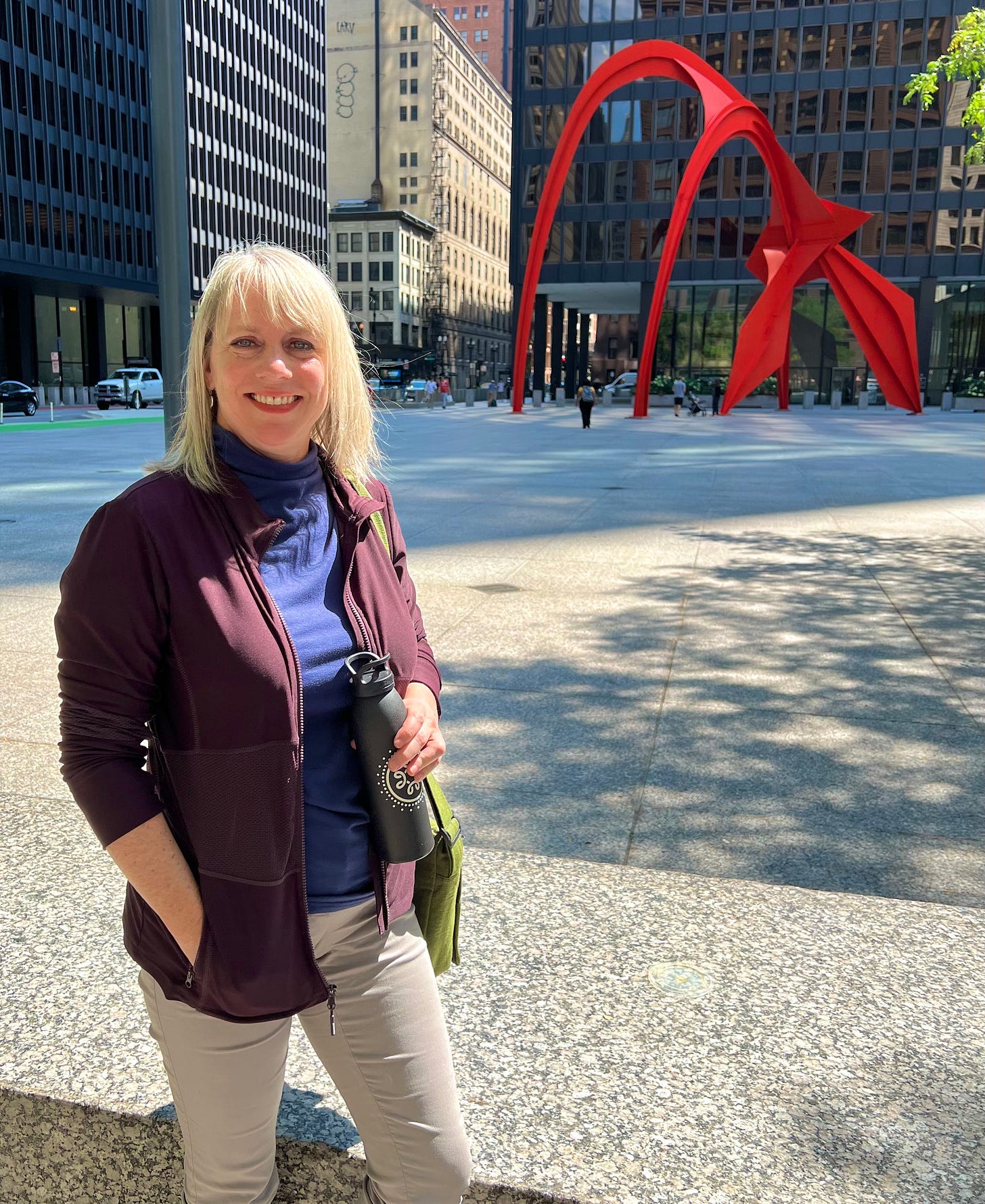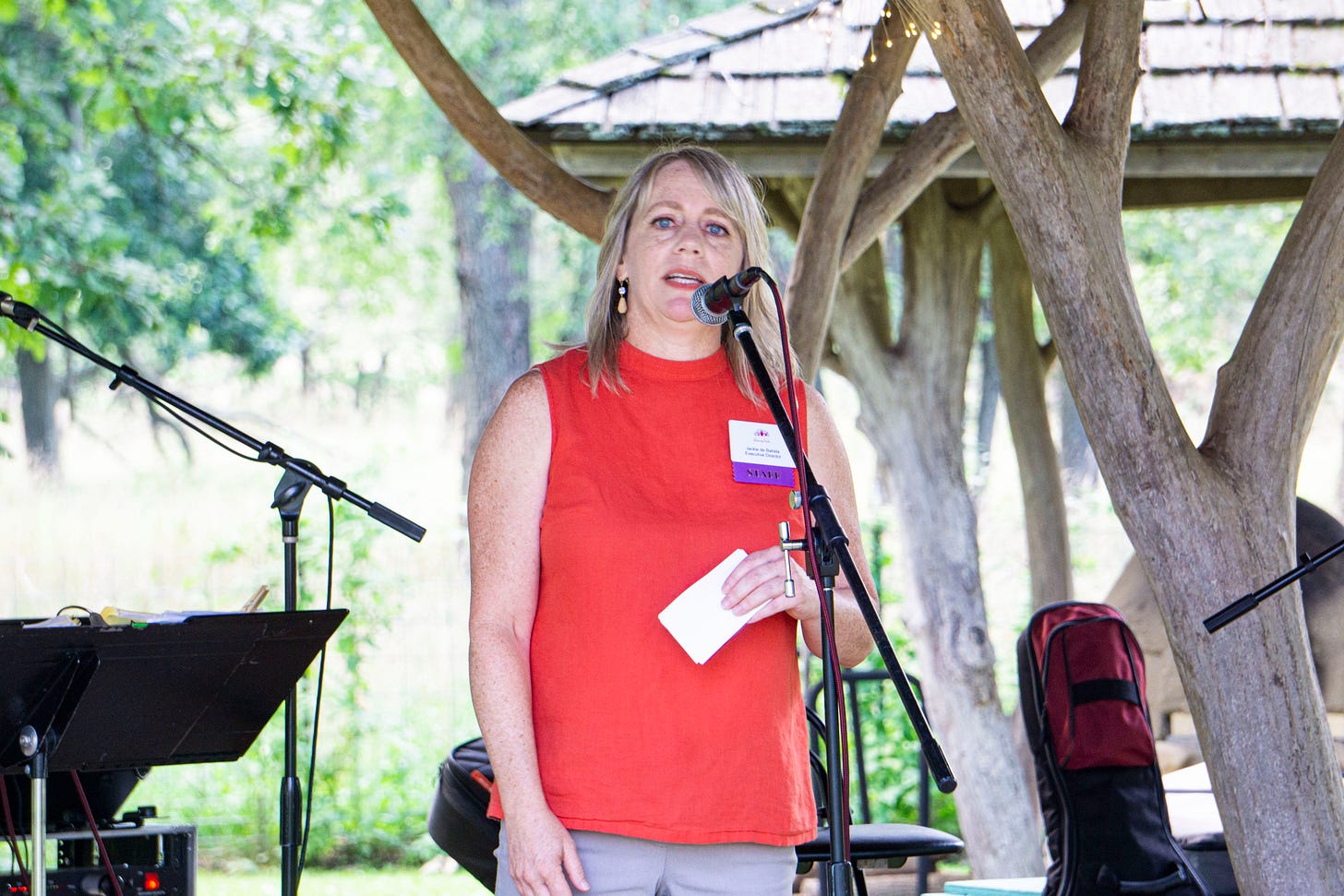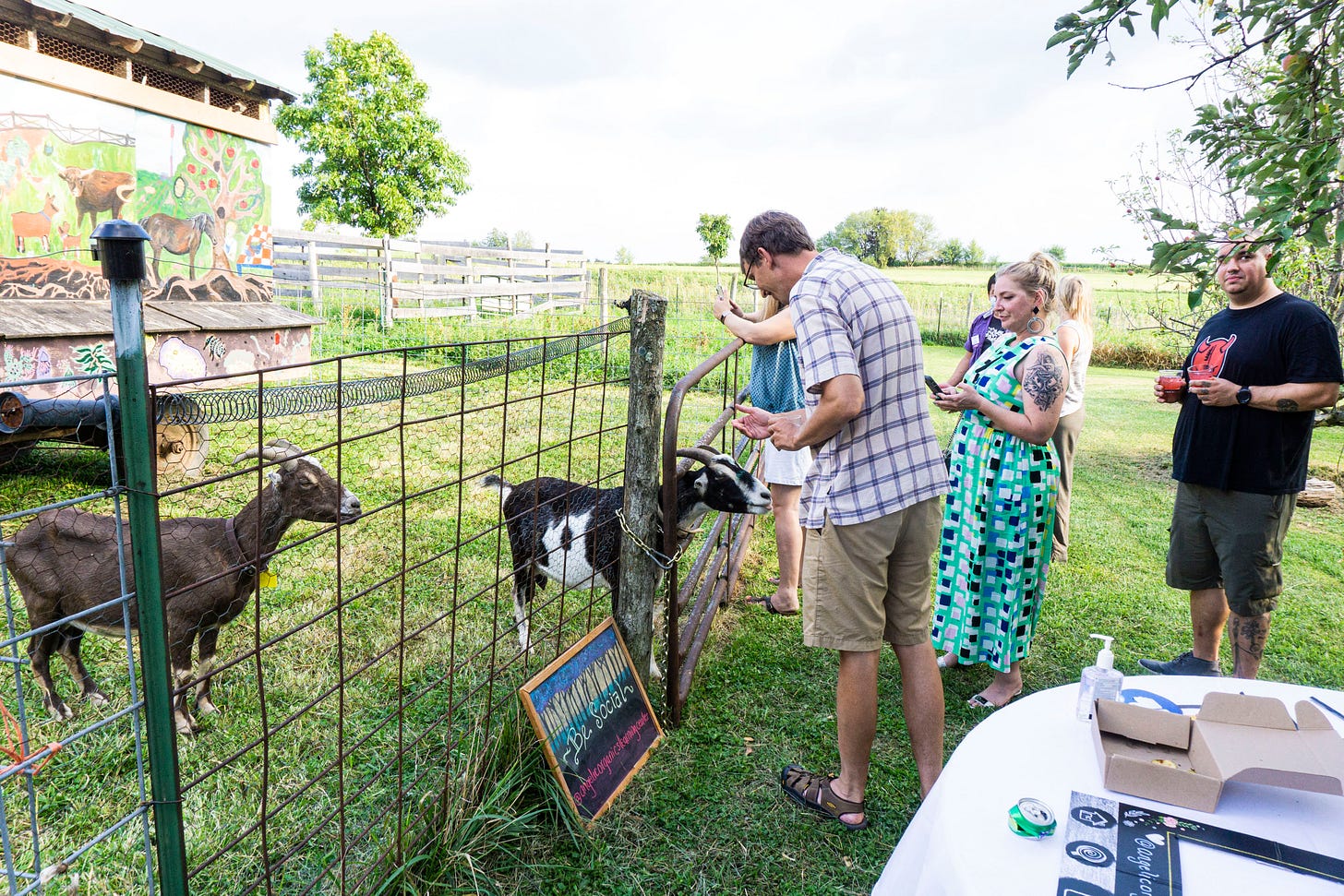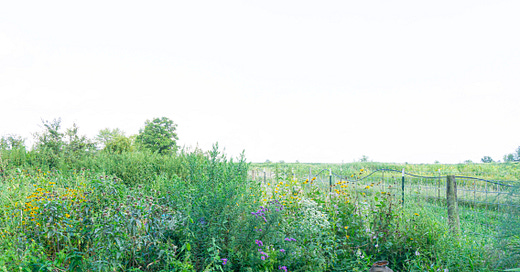Close Up On Angelic Organics Learning Center
Meet Executive Director Jackie de Batista and sign up for their 10/1 fundraising dinner
Close Up on Angelic Organics Learning Center
Angelic Organics Learning Center is one of the Midwest’s leading farmer training nonprofits. Based in Caledonia, Illinois — near Rockford, about 90 miles northwest of downtown Chicago and just south of the Wisconsin border — the Learning Center provides farmer-to-farmer training through its Upper Midwest CRAFT (Collaborative Regional Alliance for Farmer Training), its Stateline Farm Beginnings program and its Farm Viability Circles, along with special events and farm camps.
Angelic Organics Learning Center also coordinates the Roots and Wings urban farm, located in the Blackhawk Courts public housing community in Rockford.
\And, on the evening of Saturday, October 1, Angelic Organics Learning Center is holding an annual fundraiser to support all of the good work above. The Gather & Grow Farm Social will be held on the Learning Center’s home turf in Caledonia, and it will feature delicious treats from Chef Paul Sletten of Rockford’s Abreo restaurant. Click the button below for more information and tickets.

I had the pleasure of catching up with Jackie de Batista, Executive Director of the Learning Center, recently when she paid a visit to Chicago. Jackie is a farmer herself, partnering with her husband on Irish Grove Farms, a sustainable livestock operation in Pecatonica, Illinois, west of Rockford.
The following are excerpts from that conversation.
Q: What is the post-pandemic new normal for Angelic Organics Learning Center?
A: We are fully open, we're back to full programming. Quite frankly, in some ways it’s a growth struggle for us, because our staffing levels dropped a little bit during the pandemic… But our on-farm programs are all completely open… All of our programs are outdoors 100 percent of the time, unless we have a weather event. And so that's a pretty simple shift for us to make…
Roots and Wings, our farm, is doing really great… A lot of what our work does with the youth in that community is dependent upon our community partners. The farming is going splendidly, we had almost a double increase in sales this summer. And we're back to selling at our offsite markets that we set up at the city of Rockford and with Blue Cross Blue Shield, which we've done in the past.
Farmer training continues to look really different. And what's interesting about that is we shifted [during the pandemic] and went to almost a full online model for our farmer training program. The wonderful benefit of that is that we've been able to reach a much more diverse and broad population. We've been able to work more closely with farmers in Chicago, we've had farmers in Champaign-Urbana, who have gone through our programs that we continue to work really closely with. So it's really broadened our network. At the same time, when there's a desire to build community within our farmers, it's a bigger geographical range, right? And so it's harder to come together in person with our farmers.

Q: How would you characterize the beginning farmers who enroll in your programs? Are they young beginners? Are they career transitioners? Are there any older people who are getting involved?
A: Yes, yes and yes. I wouldn't say there's a lot of people who are just out of college, it seems to be mostly people who are at least late 20s, early 30s.
There are rural farmers who may have family land or they're coming back to their hometowns and stepping back into that life. They tend to be either second career or a little bit older because they've got children in schools and things like that. People who are a little bit more urban-based are younger… We've had farmers who were just focusing on honey… We have livestock farmers, as always, we have people that are stepping into flower farming…
Q: Our perception is that the pandemic clearly accelerated consumer interest in local food. Are you seeing any parallel upswing in the number of people who want to be farmers?
A: I don't know if I can answer that. I would say that the pandemic certainly highlighted the importance of the local food chain. It became extremely and immediately apparent to people that these global food chains collapse at the drop of a hat and did collapse… But I think that the barriers to entry for farmers, it's still in the land access side, it's still on the training side… With our educational programming, we really work on the consumer side and are trying to encourage people to purchase locally. But the barriers to new farmers are much more complex than that…
I think that there's always been a strong desire to farm among a small subset of the population. And perhaps the pause allowed people to really consider that and lean into that a little bit more, because everyone's re-evaluating their lives and how we spend our time… And I do think that there are people that are stepping into farming because they've upped their desire to build more meaning into their lives...
Q: Climate change is definitely having an impact on farmers. Has your curriculum been adapted to deal with this issue?
A: We've adjusted our curriculum quite dramatically, especially our on-farm curriculum, to address bigger picture issues that we're facing, such as climate change and purchasing power. We're constantly updating and adjusting…

Q: Let’s talk a bit about your Gather & Grow Farm Social.
A: It's going to be a really, really lovely time. It will be in the same space as last year. A little bit different environment, as we're trying to do less of a sitdown and more of a socializing atmosphere… We want to encourage people to get to know each other…
It's supposed to be a celebration of our work and a celebration of the people that have gone through our program. So we're really excited about that, that's the joyous stuff to counteract the heaviness of the work and the importance of that…
At the civic engagement talk that I was at this morning, they asked the question, how do you show love for your community? A lot of times when you talk about civic engagement and volunteering, you focus on the negatives. I'm trying to fix this or we just focus on what we're against. That's where our energy goes. But what if we reframe it as, “How do we show love to our community? How do we show love to Chicago? How do we show love to Rockford? How do we show love to Caledonia and Beloit? Belvedere?”...
That's transformative. How do you show love to your family members? Well, why can't you show that to your community? It's not a big step, then the next step is actually really simple. And it's showing love to your neighbor, your farmer. It's showing love to that empty lot right next door, whatever it is. This is old, this is the Bible and it shouldn't be that radical.




